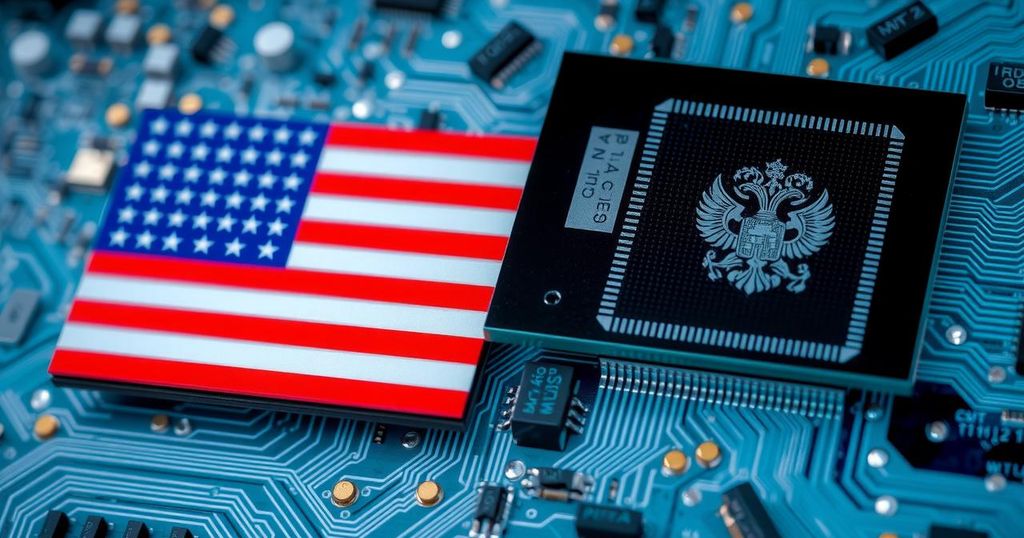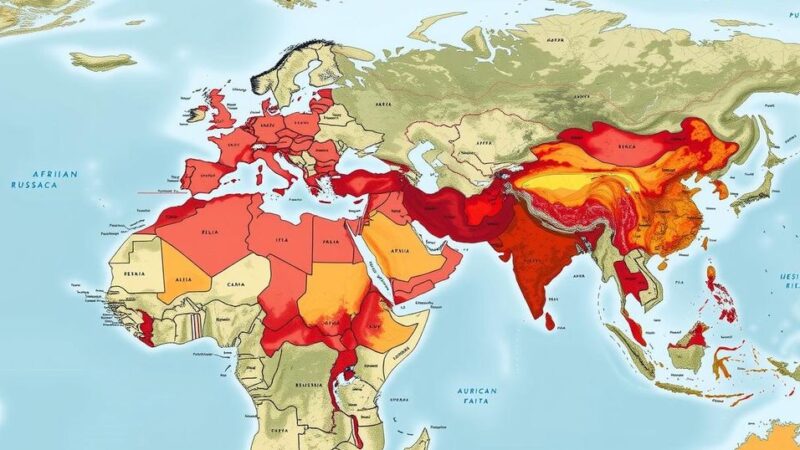A Senate report reveals that U.S. export controls on advanced computer chips for China and Russia are inadequate. The report emphasizes the need for increased funding and enforcement resources to ensure compliance and prevent military misuse of technology. Ongoing smuggling practices and oversight failures have allowed adversaries to continue accessing critical chip components, highlighting significant security concerns.
A recent report by the Senate’s Permanent Subcommittee on Investigations has deemed the U.S. Department of Commerce’s efforts insufficient in restricting access to advanced computer chips by China and Russia. The report highlights that the Bureau of Industry and Security (BIS) requires additional funding to effectively enforce existing export controls. Following Russia’s invasion of Ukraine, the Biden administration issued export restrictions, but the report suggests that these measures have largely failed due to insufficient resources and lack of compliance by American chip manufacturers.
The report mentions that despite notable actions taken by the government, oversights persist, allowing companies such as Texas Instruments to supply components to the Russian military via front businesses operating in Hong Kong. It was pointed out that Texas Instruments did not adequately monitor its distribution chain for signs of such diversion of products. Furthermore, the subcommittee highlights an alarming trend, where exports to Armenia and Georgia—countries that allegedly facilitate Russia’s access to U.S. technology—almost doubled from 2021 to 2022.
Moreover, the report notes that China’s sophisticated smuggling networks enable the country to circumvent export controls, effectively utilizing U.S. technology. Congress has been urged to enhance BIS’s budget to recruit additional personnel for enforcing export regulations and to impose stricter penalties on noncompliant companies. The report’s recommendations are crucial for safeguarding U.S. national security interests and preventing advanced chips from contributing to military capabilities of adversarial nations.
The U.S. government’s efforts to regulate the export of advanced computer chips, particularly in the wake of geopolitical tensions with nations like China and Russia, have faced scrutiny. Concerns have risen regarding the effectiveness of these regulations, especially as adversarial states seek to acquire technologies that could enhance their military capabilities. The report underscores the need for more robust enforcement mechanisms, funding, and resources to prevent such technologies from being misappropriated by foreign powers.
In conclusion, the Senate report indicates a critical deficiency in the U.S. Commerce Department’s capacity to control the export of advanced computer chips. The lack of adequate funding and resources compromises national security, allowing adversarial nations to access essential technologies. Legislative support to enhance enforcement abilities and increase penalties is urgently required to ensure the effectiveness of export controls and protect U.S. interests from foreign military advancements.
Original Source: apnews.com






